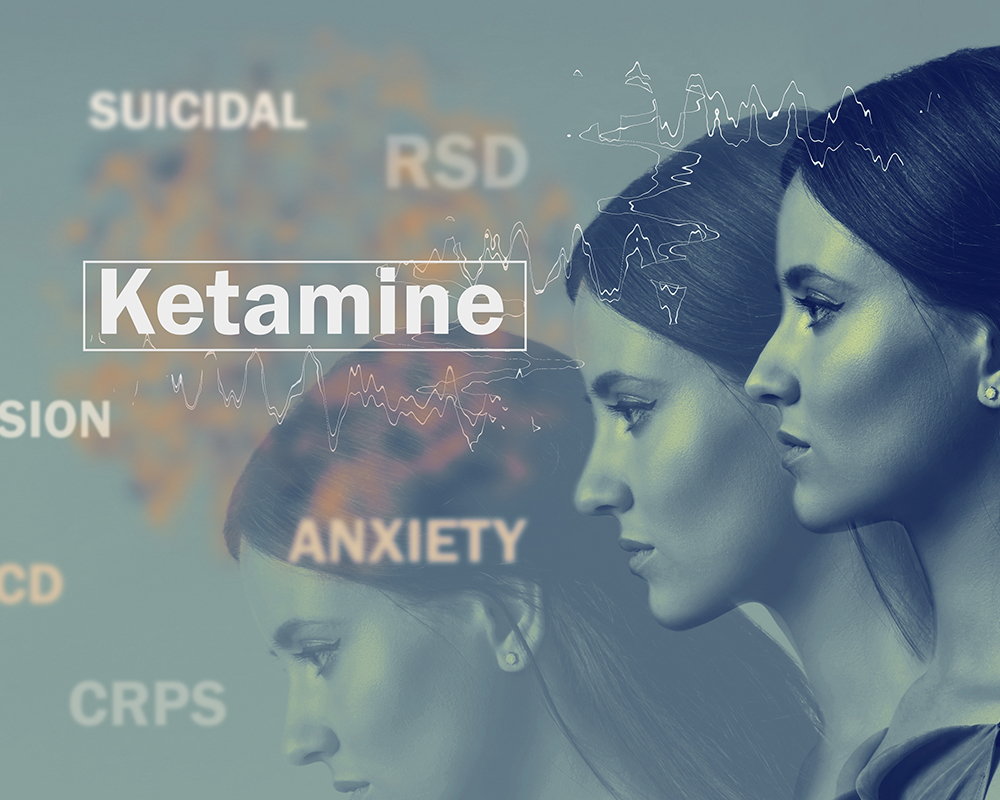Anxiety is an overwhelming disorder that affects millions of people around the world. It causes feelings of panic, consistent worry, and uneasiness; anxiety disorders can disrupt work, relationships, and well-being.
There are various traditional treatments, such as therapy or medication, but sometimes, this is not enough. Fortunately, ketamine for anxiety offers a new, promising option. This medication, once used as an anesthetic, has shown significant potential in alleviating symptoms of anxiety, offering fast and lasting relief.
Understanding Ketamine
Ketamine was originally developed as an anesthetic for surgeries but has recently gained attention for its potential to treat mental health conditions, especially those that don’t respond to traditional therapies. Ketamine is unlike most antidepressants or anti-anxiety medications that target serotonin or dopamine levels. Moreover, ketamine influences the glutamate system, the brain’s most abundant neurotransmitter, and carries out processes such as mood regulation, learning, and memory. Ketamine increases the activity of glutamate receptors, which promotes better communication between brain cells and helps to rebuild neural connections.
What is Ketamine for Anxiety?
Ketamine is effective in quickly enhancing powerful medication that doctors originally used as an anesthetic. Recently, research has shown that ketamine can provide rapid relief for individuals suffering from anxiety disorders. Unlike typical antidepressants, which affect serotonin and dopamine levels, ketamine works by targeting the brain’s glutamate system. This system plays a key role in mood regulation and neuronal communication, promoting the formation of new neural connections. This process helps the brain heal from the effects of long-term anxiety and stress. By encouraging the brain’s plasticity, ketamine for anxiety can offer significant improvements in mood and overall mental health.
How fast does ketamine work for Anxiety?
One of the most promising aspects of ketamine for anxiety is how quickly it works. While traditional medications for anxiety may take weeks to show effects, many patients report feeling improvements within hours or days of their first ketamine treatment. This is especially valuable for those who have not succeeded with rapid responses and particularly for individuals who have not received relief from conventional therapies.
The process of Ketamine Therapy
The first thing to do to start the process of ketamine therapy is to consult a specialized healthcare professional with expertise in ketamine-assisted therapy. They will analyze your medical history, underlying symptoms, or current medications and discuss potential risks. However, healthcare professionals administer and control ketamine treatment for anxiety in a clinical setting. A typical ketamine session involves administrating the medication through intravenous (IV) infusion through a nasal spray. During the session, doctors deliver ketamine in a low dose, allowing the patient to relax in a comfortable environment. The treatment lasts about 40-60 minutes, during which the patient may experience mild dizziness, which fades once the treatment ends.
Furthermore, patients may also need treatments after the initial session, depending on their symptoms and responses. Some individuals may experience noticeable improvement after a single session, while others may require additional treatment options for long-lasting relief.
Benefits of Ketamine Therapy for Anxiety
Ketamine for anxiety offers various advantages that make it different from traditional treatments. However, some valuable benefits of anxiety include:
Rapid Relief:
Ketamine often reduces symptoms of Anxiety within hours or days, offering much faster relief compared to traditional antidepressants, which can take weeks to start reacting.
Effective for Treatment-Resistant Anxiety:
For those who haven’t found relief from conventional medications, ketamine therapy provides a new option that may help manage symptoms.
Sustained Relief:
Many patients experience long-lasting relief, with the onset of rapid improvements lasting for weeks or months after completing a series of treatments.
Reduced Suicidal Thoughts:
Ketamine rapidly eliminated suicidal ideation, providing crucial support for those at immediate risk.
Side Effects and Risks
While ketamine therapy is generally safe and highly effective, it is also crucial to be aware of the potential risks and side effects. Some individuals experience mild symptoms like fear or dizziness. In addition, there are many side effects of ketamine which are:
Dissociation:
Many patients experience a temporary feeling of detachment or out-of-body sensations during the treatment, which usually fades as the effects of the drug wear off.
Increased Heart Rate and Blood Pressure:
Ketamine causes a temporary increase in heart rate and blood pressure, which may be alarming for those with heart conditions.
Nausea and Dizziness:
Mild nausea and dizziness are also possible, although these side effects tend to subside shortly after treatment ends.
Risk of Misuse:
Ketamine has the potential for abuse, especially when not used in a controlled, clinical setting. However, patients must receive treatment under the supervision of a licensed healthcare provider to minimize these risks.
How many types of ketamine treatments for anxiety are there?
There are three most common ketamine treatments for anxiety. As ketamine is currently one of the most promising and innovative treatments. The Food and Drug Administration (FDA) also approves it as the best treatment. Whereas many healthcare professionals also recommend ketamine for anxiety as a trusted source for patients in a healthcare setting. The ketamine treatments include:
R-S ketamine:
Researchers formulate this type of ketamine in labs as a mixture of dextrorotatory and levorotatory ketamine in equal proportions. Therefore, it is a mixture of racemic of both isomers. It serves multiple purposes and is available in rectal, sublingual tablets, or oral doses.
S-ketamine:
The FDA approved it in 2019 as a levorotatory isomer of ketamine for treating various mental health issues, including treatment-resistant anxiety. This drug gives quick relief from mental health issues like depression or suicidal thoughts. It is more potent and has more psychedelic effects than its other isomers. Moreover, its strength is four times greater than R-ketamine.
R-ketamine:
This isomer is not yet approved as an antidepressant by the FDA. However, clinical trials and research are in progress to prove it as a valuable drug that treats severe mental problems. Moreover, its activity is weaker than that of S-ketamine and ultimately shows few dissociative effects, unlike that of ketamine.
Future Research of Ketamine for Anxiety
Research on ketamine’s use in treating anxiety is still ongoing, and scientists are actively exploring its potential for treating other mental health disorders, such as depression and PTSD. As more clinical trials and studies are conducted, researchers may gain a better understanding of the long-term effects and risks of ketamine therapy, as well as its optimal use in treating various anxiety-related conditions.
Key Takeaway
Ketamine for anxiety offers a promising treatment option for individuals who have not responded to traditional therapies. Its ability to provide rapid, effective relief from anxiety symptoms, especially in treatment-resistant cases, sets it apart from conventional medications.
However, every treatment needs crucial attention, this is why it is important to engage a healthcare provider to determine if ketamine therapy is right for you. With ongoing research and increasing clinical use, ketamine could become a valuable tool in managing Anxiety and other mental health disorders in the future.




